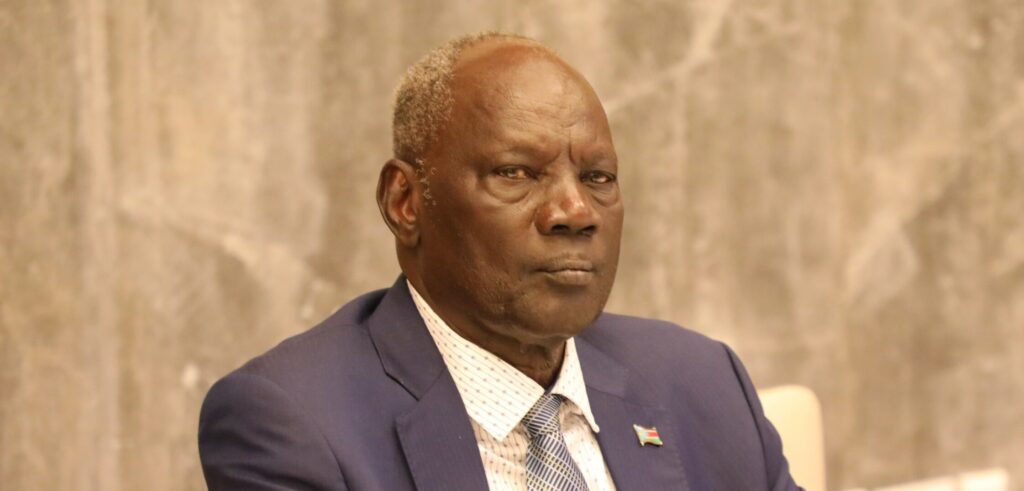South Sudan’s Minister of Information, Communications, and Postal Services has defended the recent increase in telecommunication tariffs, attributing the hike to the country’s weakened currency.
Last month, South Sudan’s three main telecom operators – MTN, Digitel, and Zain – announced tariff increases to match with the Central Bank’s US dollar reference rate.
The three telecom firms said the National Communications Authority and the Bank of South Sudan (BOSS) had agreed to adjust the telecom tariffs in response to recent Boss official exchange rate increases.
Speaking at the ongoing 8th Governors’ Forum in Juba on Wednesday, Minister Michael Makuei claimed that South Sudan’s rates remain the lowest in the East African region.
Makuei explained that telecommunication companies in the country charge 0.4 cents per minute, and it is the current economic challenges, including a devalued currency, that have led to the rise in costs.
“South Sudan’s tariffs are the lowest in the region. We charge 0.4 cents per minute. Before our currency weakened, we didn’t feel the impact. But when the currency fell, the exchange rate started affecting tariffs,” Makuei said.
Makuei, who is also the government spokesperson, pointed to the country’s economic downturn as the root cause of the increased costs, clarifying that the rise in tariffs is not due to an official price hike but rather the effect of the exchange rate on the cost of services.
“The problem is not an increase in charges, but the weakness of our currency, which has led to these problems. Operators charge in South Sudanese pounds, but international norms require them to charge in hard currency. When converted to local currency, the tariffs go up,” Makuei stated.
He also highlighted challenges faced by telecom companies, particularly in rural areas. “Operators are even threatening to close down towers, especially in rural areas where they are incurring more losses. Some companies are considering limiting their services to urban centers,” Makuei said. “They have raised concerns about not being able to get foreign currency at official rates from the Central Bank.”
Makuei further explained that the Central Bank of South Sudan has been unable to provide sufficient foreign exchange at official rates, forcing companies to rely on the black market. “We spoke to the Central Bank, and they clarified that they could not allocate foreign currency to operators at the official rates. They had to agree on terms with operators based on the bank rate, not the black market rate,” he said.
The national minister stressed that companies would continue to charge higher tariffs as long as the currency remains weak. “We have two options: either we tell the companies to shut down, or we let them operate based on the current exchange rate,” he stated. He added that if the currency strengthens, tariff rates will naturally decline.
In response to public complaints, Makuei suggested that citizens either reduce their phone usage or continue to endure the situation. “If the currency gains strength, rates will automatically go down. In the meantime, we have to accept the reality of the situation,” he said.




